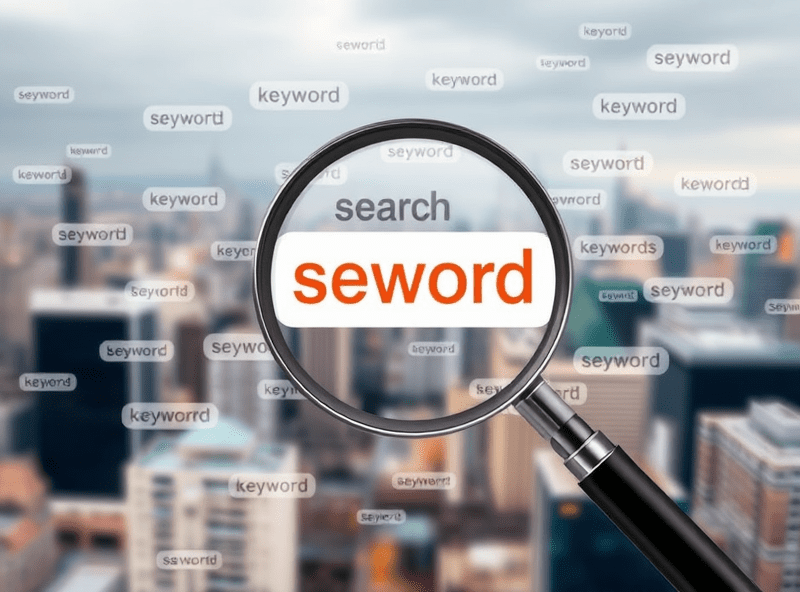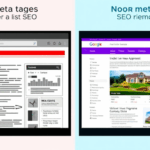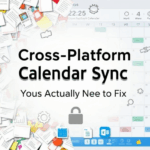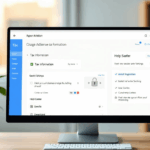Local Link Building Tactics That Actually Help Small Businesses
Claiming Real Local Listings Is Boring But Works
I know it’s not sexy. But half the local link game is just claiming all the stuff your competitors forgot about. The Chamber of Commerce, the public business directory your state runs, maybe a couple local library calendars (some of them still link out, shockingly). Don’t overthink it.
The one that always slips: university entrepreneurship departments. A client of mine got a .edu link from a business incubator literally housed in a sub-page nobody updated since 2016. We filled out the ancient Google Form, someone answered a week later, and boom—link on a high-authority domain nobody checks but makes Google smile.
Don’t go wild hiring an agency to do the same thing you could get by typing “[city] business directory” and emailing someone with an old-school AOL address.
The Underrated Power of Local Sponsorships
I swear this is the only strategy I’ve seen work in low-competition towns for both traffic and backlinks. Sponsor something real. Not fake charities with three backlinks and no presence. I mean the local elementary school’s Fun Run, or the community fridge, or your cousin’s theater company whose site has existed since 2008 and gets scraped by press releases once a year.
The best part? You ONLY need one or two of these to stick to move the needle. If the page lives on a domain that’s been old and semi-respected since the Obama era, it has gravity. There’s a seasonal bike race in Erie, PA that hands out sponsor links on a permanent index.html with hard-coded logos. I cold-emailed them on behalf of a logistics startup and paid eighty bucks. It’s still up.
Also, when it comes to getting the link added: never say “backlink.” Say “we’d love to be listed.” The word “backlink” triggers spam defenses harder than a CBD coupon code.
Getting Links from Local News Is Easier Than You Think
This one blew my mind the first time we pulled it off for a dog groomer in Kansas City. Weekly newspapers are desperate for human people doing human things. If you’re hosting *any* kind of event — even if it’s just offering free doggie nail trims outside your building next Saturday — email the editorial address in the masthead. Use a real name. Ask politely. You’ll get picked up more often than you expect.
Here’s a copy-paste snippet (adjust to your vibe):
Hi [Editor Name],
Just wanted to share — we’re [doing event] this [day] at [location], open to the public. If it’s something your community listings might mention, we’d be thrilled to see it there. Happy to send photos or anything else.
Best,
[Your Real First Name]
That’s it. No PR firm. Just be non-weird. If the local paper runs a web version, odds are they link out at the bottom. If you get lucky, you’ll get scraped by Patch, CitySpark, or an events calendar plugin that redistributes to other outlets.
Scripts and Contact Tools That Break More Than They Help
I once added Hunter.io bulk emails to a link outreach campaign and set my mail schedule too tight. Gmail flagged the whole domain with a nasty warming delay, and my client’s regular invoices started showing up in spam. Fully worth the lesson: there’s such a thing as too automated when it comes to grassroots link building.
Also had deliverability issues when using the default contact forms on older Chamber websites — they route through weird Windows boxes or .aspx handlers from another universe. If your message matters, dig around for a real email or phone number.
Undocumented annoyance: Google Business Profile lets you add short posts or updates, but linking to affiliate pages (even indirectly) gets flagged silently. I lost a decently ranked post title after adding a custom utm_content param… no warning, it just stopped propagating to Maps. No fix, either. Rewrote the URL, reposted, and it came back three days later.
Use Unbranded Anchors Where Google Expects Them
I stopped using keyword anchors like “dog grooming in Tampa” ages ago where it didn’t feel natural — especially on local.edu or .org domains. Now I’ll do “view our services,” or just drop the naked URL. Surprisingly, that feels safer long-term in low-volume cities where Google’s anti-manipulation radar is hypersensitive.
Some anchor approaches that worked consistently:
- “Check pricing” — Slips right into local chamber listings
- “See the map” — Great for location-based landing pages
- Domain.com as text — Surprisingly sticky on event recaps or public agendas
- “Contact us” — Still underrated link text if the goal is driving form fills
- “Meet the owner” — Works well on local stories or bios
Weirdly, when I tried swapping one client’s anchor from a branded term to “see schedule,” it bumped their traffic by something like 15% quarter-over-quarter. Might’ve been causal, might’ve been correlation, but I’m not arguing with it.
Google Maps Listings That Leak Authority
Yeah, I know Google Maps links are technically nofollow. But some of the business listing URLs — especially from aggregators like Local.com or DexYP — get picked up with full canonical tags, and pass juice just fine if they’re duplicated across vertical platforms.
There’s also a sneaky spot: the “located in” field. If you run a shop inside a larger location (think mall, market, nonprofit building), and that parent org has a verified Google Maps spot, you can ask them to add your business under it. That internal linking — when verified — shows up both ways and feels like a ghost link if you view the source. Not necessarily rank-moving, but definitely affects data-crawlers like Moz or BrightLocal.
The real find? Some of those third-party listings scrape the Maps data and DON’T apply nofollow. Found one from Mapquest (!) pushing direct juice because they clone Maps updates weekly but don’t strip the link formatting. Go figure.
Local Review Loops and the Hidden Link Blooper
Trying to get links from review platforms is usually a waste — Yelp, Thumbtack, Angi, whatever — they’re designed to sponge authority and not hand it out. But I did find a leaderboard page on one of those freelancer job boards… and the top providers get their business name linked. Dynamically. Based on recent jobs.
That meant if we stacked short gigs under the business profile for like 2 weeks, we popped into the “Top in [City]” carousel, and that triggered an actual indexed HTML page with a dofollow name link. It rotated off later, but seemed to help over a tight keyword window.
Downside? The platform changed their leaderboard layout a month later and replaced the links with JavaScript popups using onclick relays. Dead. That’s the platform design BS you never know until you test it live and scream at DevTools for 45 minutes.
Offline Events That Get You Into Linkable Calendars
The linkable calendars I’m talking about aren’t designed to be found. Think local universities’ public lifelong learning pages, museums with rotating workshops, or community foundation calendars. Most of them still run on janky WordPress backends with calendar widgets like All-in-One Event Calendar or The Events Calendar plugin.
If your small business is doing *literally anything* that could pass for an “event” (hello, candle-making demo? discounted open house? afternoon with dogs?), you can often submit to these and get a full event card — with links. Not every time, but often enough to be worth it.
I had a tutoring service client host a SAT info night — not even well attended — but that submission got picked up by the city’s event syndication feed. That feed pulls into six unrelated blogs and once ended up in a Microsoft Bing destination guide. True story.
Very few platforms auto-strip links in calendar descriptions unless you go overboard. One link, one paragraph of real description text, and you’re usually good.
Don’t Sleep on Business-to-Business Referrals with Backlinks
This sounds obvious until you realize 90% of small businesses treat their vendors like secrets. Who provides your printing services? Who does your landscaping? Who do you refer when your client asks about signage?
If you refer them publicly — even in a bland “preferred partners” page on your own site — you can ask for reciprocity. I’ve seen “thanks to our web team at” footer links on HVAC sites do real lifting.
Especially in tangential industries like signage, construction, bookkeeping — they rarely care about SEO but their pages do get crawled frequently since they wire into government contracts or local government docs that get scanned or linked from PDFs. Strange how one PDF policy brief uploaded by a city inspector can push a link along the chain.
Most folks don’t ask. But if you eat at a cafe weekly and design their flyers for cash, why not ask if you can add your service link to the bottom of their online menu PDF?
The PDFs on some cafe websites get indexed and linked far more than you’d expect… because food reviewers love direct file links when they’re writing too fast to check each menu item manually.














